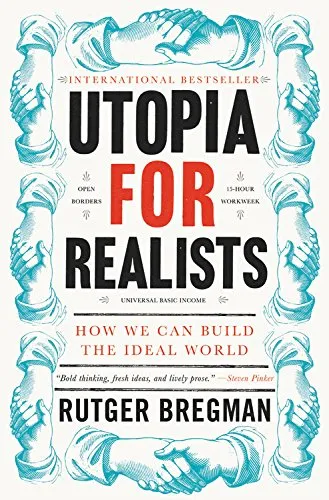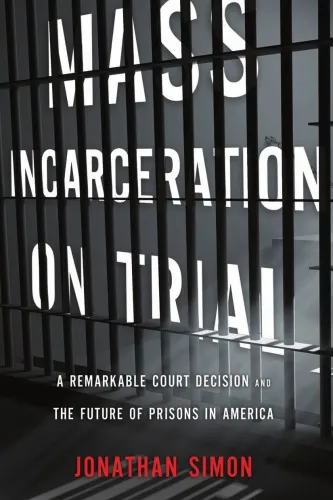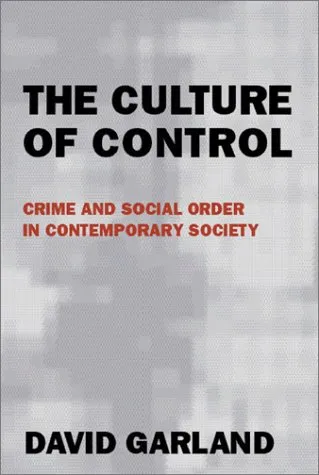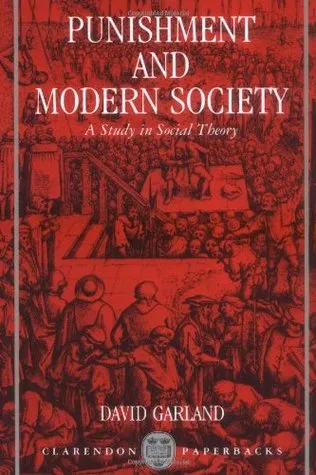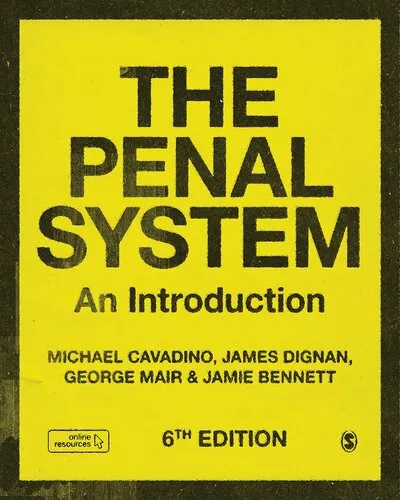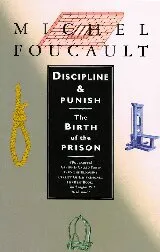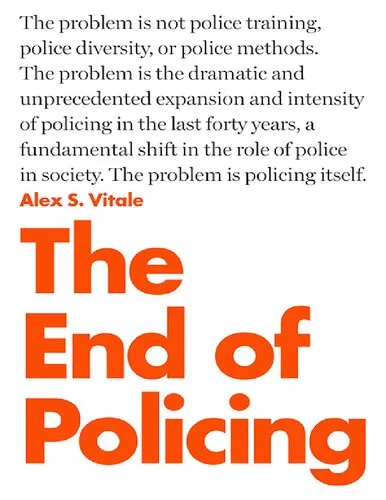The Safety Utopia: Contemporary Discontent and Desire as to Crime and Punishment
3.7
بر اساس نظر کاربران

شما میتونید سوالاتتون در باره کتاب رو از هوش مصنوعیش بعد از ورود بپرسید
هر دانلود یا پرسش از هوش مصنوعی 2 امتیاز لازم دارد، برای بدست آوردن امتیاز رایگان، به صفحه ی راهنمای امتیازات سر بزنید و یک سری کار ارزشمند انجام بدینکتاب های مرتبط:
Persian Summary
معرفی کتاب «The Safety Utopia: Contemporary Discontent and Desire as to Crime and Punishment»
کتاب «The Safety Utopia» نوشته هانس بوتلییر، به بررسی عدم رضایت و تمایلات اجتماعی معاصر در رابطه با جرم و مجازات میپردازد. این کتاب یک تحلیل جامع و اجتماعی از مفاهیم امنیت و خطر در جوامع مدرن ارائه میدهد و به دنبال پاسخگویی به این سؤال است که چرا و چگونه مفهوم امنیت یک آرمانشهر شده است.
خلاصهای از کتاب
هنگامی که به جوامع مدرن نگاه می کنیم، امنیت به عنوان یکی از پایههای اساسی ترقی و توسعه اجتماعی مورد توجه قرار میگیرد. بوتلییر با تحلیل دقیق روندهای اجتماعی، سیاسی و فرهنگی، ارتباط جرایم و احساس امنیت اجتماعی را بررسی میکند. او توضیح میدهد که چگونه سیاستهای مربوط به قانون و نظم به شدت متاثر از ترس و نگرانیهای اجتماعی هستند.
کتاب توضیح میدهد که دیدگاه ما از جرم و مجازات چگونه تغییر کردهاست و به چه شکلی جامعه به دنبال ایجاد یک آرمانشهر امن میباشد. نگرانیهای اجتماعی ما در مورد جرم به ندرت فقط به واقعیتهای آماری مربوط میشود؛ بلکه آنها اغلب بازتابی از عدم قطعیتهای فرهنگی و اجتماعی هستند که جامعه را فراگرفته است.
نکات کلیدی
- پیوند میان امنیت و سیاستهای اجتماعی و نحوه تاثیرگذاری آن بر روی سیستم عدالت کیفری.
- تحلیل جذاب از اینکه چگونه مفهوم امنیت به یک ایدئولوژی فرهنگی تبدیل و تحت تاثیر شرایط اقتصادی و جغرافیایی قرار گرفته است.
- مطالعه دقیق و جامع فرآیندهای جامعهسازی و مقرراتی که امنیت اجتماعی را شکل میدهند.
جملات معروف از کتاب
«پدیده امنیت امروزی چیزی بیش از یک مسئله فردی است؛ این یک تجربه اجتماعی و جمعی است که هویت فرهنگی ما را تعریف میکند.»
«تصور آرمانشهر ایمن، نتیجهی پیچیدهای از تطورات تاریخی، فرهنگی و اجتماعی است که همواره در حال تغییر و تحول است.»
چرا این کتاب اهمیت دارد؟
کتاب «The Safety Utopia» برای تحلیلگران اجتماعی، سیاستگذاران و دانشجویان علوم اجتماعی یک منبع ارزشمند و ضروری است. این کتاب با بررسی پدیدههای جرم و امنیت، ابعاد جدیدی از موضوعات امنیتی را باز میکند که فراتر از جنبههای سطحی و رسانهای است. تمامی کسانی که به مطالعه و درک بهتر از امنیت روانی و اجتماعی علاقهمندند، میتوانند از رویکرد تحلیلی و علمی این کتاب بهرهمند شوند. در نهایت، این اثر به همه ما یادآوری میکند که امنیت اجتماعی نهتنها یک مسئولیت فردی، بلکه یک چالش جمعی و فرهنگی است.
Introduction to "The Safety Utopia: Contemporary Discontent and Desire as to Crime and Punishment"
In "The Safety Utopia," Hans Boutellier explores the complex and often paradoxical societal landscape in which modern narratives of crime, security, and justice unfold. By delving into cultural anxieties and aspirations related to safety and punishment, Boutellier invites readers to examine how contemporary societies navigate the often contradictory desires for freedom, security, and control.
The work provides an in-depth analysis of how crime and punishment are perceived, constructed, and institutionalized in contemporary Western contexts, with a particular focus on the Netherlands. Through a sociological lens, Boutellier discusses public perceptions of safety, the role of media in shaping these perceptions, and the subsequent policy implications. The book challenges readers to rethink commonly held beliefs about safety and crime, emphasizing the idea that societal responses to crime are as much about managing collective emotions and desires as they are about reducing crime itself.
Detailed Summary of the Book
Boutellier's "The Safety Utopia" is divided into several key thematic areas, each tackling a different element of the complex web of contemporary crime and punishment.
The book opens with an examination of the concept of the safety society, where public discourse is dominated by concerns over personal safety and the measures installed to maintain it. This section outlines how the desire for a utopian sense of security shapes public policy and social attitudes.
Furthermore, Boutellier explores the role of media and sensationalism in amplifying fears of crime, irrespective of statistical evidence. He argues that media representations often skew public perceptions, leading to a culture of fear and anxiety that influences policy disproportionately to the actual risk of crime.
Another critical segment of the book delves into the paradox of freedom versus security. Boutellier assesses how democratic societies grapple with the demand for heightened security measures without infringing on personal freedoms, a balance that is increasingly delicate in the face of global threats such as terrorism.
The book concludes by addressing the implications of these dynamics for criminal justice policy, urging policymakers to consider the emotional and psychological underpinnings of their approach to law and order.
Key Takeaways
- Modern societies are increasingly driven by a pursuit of an idealized state of safety, a concept Boutellier terms the "safety utopia."
- Media representations significantly shape public perceptions of crime, often leading to misinformed societal fears.
- The delicate balance between ensuring security and preserving personal freedom presents ongoing challenges for policymakers.
- Understanding the emotional and cultural dimensions of safety is crucial for devising effective and humane criminal justice policies.
Famous Quotes from the Book
"The pursuit of safety has become a guiding principle in public administration, echoing our deepest yearnings for a life without threats."
"In our age, the media has not only become the eye that sees crime but also the voice that constructs its narrative."
Why This Book Matters
"The Safety Utopia" is a vital read for anyone interested in the intersections of sociology, criminology, and public policy. Its critical insights into the societal obsession with safety and the often misplaced fears of crime challenge readers to reconsider how they view crime and justice in their communities. Boutellier's exploration offers a nuanced understanding that both critiques the present state of fear-driven policy-making and provides a framework for more balanced, thoughtful approaches to crime and punishment.
By emphasizing the importance of emotional and cultural dimensions, Boutellier encourages a shift from reactive to reflective policies that are better suited to a just and democratic society. The book is essential for policymakers, sociologists, criminologists, and any engaged citizen striving to understand the forces shaping our collective approach to safety and justice.
دانلود رایگان مستقیم
شما میتونید سوالاتتون در باره کتاب رو از هوش مصنوعیش بعد از ورود بپرسید
دسترسی به کتابها از طریق پلتفرمهای قانونی و کتابخانههای عمومی نه تنها از حقوق نویسندگان و ناشران حمایت میکند، بلکه به پایداری فرهنگ کتابخوانی نیز کمک میرساند. پیش از دانلود، لحظهای به بررسی این گزینهها فکر کنید.
این کتاب رو در پلتفرم های دیگه ببینید
WorldCat به شما کمک میکنه تا کتاب ها رو در کتابخانه های سراسر دنیا پیدا کنید
امتیازها، نظرات تخصصی و صحبت ها درباره کتاب را در Goodreads ببینید
کتابهای کمیاب یا دست دوم را در AbeBooks پیدا کنید و بخرید
1470
بازدید3.7
امتیاز0
نظر98%
رضایتنظرات:
3.7
بر اساس 0 نظر کاربران
Questions & Answers
Ask questions about this book or help others by answering
No questions yet. Be the first to ask!


